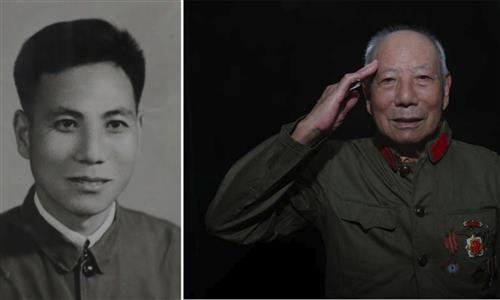Beijing court rules 'face-swapping' app infringed on personal information, not right of portrait
Photo: Courtesy of Beijing Internet Court
While it may seem harmless to upload a photo and have it processed with deep synthesis algorithms to copy the style of a famous individual, there are risks involved.
In some cases, using someone's likeness without their permission can infringe on their portrait rights. A trial at the Beijing Internet Court on Thursday highlighted the complexities of this issue. The "face-swapping" app involved did use the plaintiff's video footage, but the court found it did not constitute infringement of right of portrait. Instead, the court ruled that the defendant's actions constituted an infringement of the plaintiffs' right to personal information.
In this case, two plaintiffs, Liao and Wu, both models for making short videos about traditional Chinese aesthetics, sued the operator of a "face-swapping" app for infringing on their portrait rights.
The plaintiffs claimed that without their authorization, the defendant used short videos published by the plaintiffs to create a face-swapping template and uploaded it to the app, providing it to other users for a fee. The plaintiffs believed that the defendant's actions infringed on their portrait rights.
The defendant also uploaded and used the plaintiffs' original facial videos without their consent, which the plaintiffs argued was a case of illegally obtaining their facial information and altering it, infringing on their personal information rights.
According to the provisions of the Civil Code, acts that infringe on the right of portrait include making, using, and publicly displaying the portrait of the rights holder without their consent, as well as distorting, defaming, or using information technology to forge such portraits.
In this case, the defendant used the plaintiff's video footage, but replaced the face with someone else's using deepfake technology, and then uploaded it to the relevant app as a template for other users to use. Thus, this behavior did not infringe on the plaintiff's right of portrait, the court ruled.
Portrait rights protection should comply with the legal requirement of "reflecting the external image that a specific person can be identified by" but the face-swapping template video involved in this case does not have recognizability in terms of portrait significance for the plaintiffs, the court said.
Recognizability emphasizes that the essence of a portrait is to point to a specific person, and a reproduced portrait through technological means should be able to allow a certain range of the public to recognize whose image it is.
But the court ruled that the defendant's actions constitute infringement on the plaintiffs' right to personal information.
When the defendant entrusted a third-party technology company to create the face-swapping template, the plaintiff's personal information was collected, analyzed and utilized, the court said.
The defendant was ordered to apologize to the plaintiff and provide compensation for mental and economic losses. The case is still in the appeal period, and the judgment of the first instance has not yet taken effect.
The unique aspect of this case is that the video template did not directly feature the plaintiffs' faces. Instead, their faces were "faceswapped" with others before being uploaded to the app by the defendant, Sun Mingxi, one of the judges of the case and a member of the trial committee of Beijing Internet Court, told the Global Times after the trial.
Although the defendant did not infringe on the portrait rights of the plaintiffs, non-personal elements of the plaintiffs - such as makeup, clothing, hairstyle, lighting and camera switching - were used to obtain financial benefits.
In other words, Sun told the Global Times, if the defendant uses such elements without the consent of the relevant rights holders, they are taking advantage of the labor input of others.
The relevant rights holders maintain their legitimate rights and interests based on the labor input, competitive interests, and other rights.
Deepfake technology, also known as "deep synthesis of internet information services," uses a form of artificial intelligence called deep learning to make images of fake events. Both videos and audio can be deepfaked.
Deepfake technology has been used by unscrupulous people in spreading illegal and false information to damage reputations or commit fraud, impairing the legitimate rights and interests of the public, and affecting social stability.
In an era of rapidly changing digital technology, accurately defining the rights holders and the types of rights is essential for the healthy development of the technology, Sun said.



